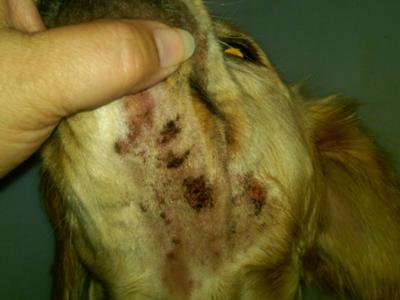Benadryl For Dog Not Working - Advice From Our Veterinarian
by Dawn
(Oceanside, CA)
Reader Question: Why doesn't Benadryl work for my dog?
My dog has been itchy since puppyhood, he is now 2 years old. At first, we thought it was food related, but that doesn't seem to be the problem. We make sure that he receives his flea treatments on time, so it is not that.
This past week he began scratching under his chin. The skin in that area is extremely irritated and sore. Also, one front toe has become irritated.
I have been using Benadryl, but that doesn't seem to be working any longer. A friend mine says her vet switched her to Zyrtec and that has been working much better. My vet said to go the same route for awhile longer until these wounds heal.
Any suggestions?
Thank you,
Dawn Getyina
Suggestion from our Veterinarian
Hi Dawn,
Benadryl is only minimally effective (particularly by itself) for dogs with allergies so I’m not surprised to hear that it seems to have stopped working. I would expect you to have a similar experience with Zyrtec.
As you’ve already learned, managing allergies can be very frustrating. Dogs can be allergic to environmental triggers (pollen, mold, etc.) or to ingredients in their food.
Diagnosing a food allergy requires a strict food trial lasting at least 6-8 weeks during which the dog eats nothing but a prescription diet that contains a single, novel protein source or proteins that have been hydrolyzed (broken down into tiny pieces). Determining what environmental triggers a dog might be reacting to ideally is done through intradermal skin testing, although blood testing can be considered for some individuals.
Environmental allergies are usually treated either through desensitization therapy (allergy shots, for example) or with a combination of frequent bathing, topical products like Dermoscent or Duoxo Seborrhea Spot-on to increase the barrier properties of the skin, omega 3 fatty acid supplements, and/or medications that suppress the immune system like prednisone or cyclosporine (Atopica) or reduce itching like Apoquel. Managing a food allergy involves completely eliminating any triggering ingredients from your dog’s diet.
If your primary care veterinarian is not in a position to handle such a potentially complicated case, make an appointment with a veterinary dermatologist.
Best of luck,
Jennifer Coates, DVM
Join in and write your own page! It's easy to do. How? Simply click here to return to Allergy.


